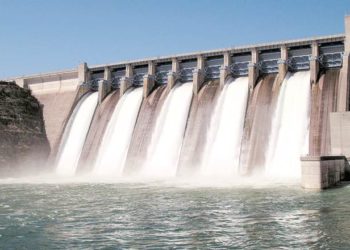Belt Road Initiatives (BRI), an ambitious initiative of the Government of Peoples’ Republic of China, is a plan to build a wide network of land and sea routes for global connectivity. Boosting global trade along with building infrastructure in countries where they are cannot afford by themselves is the main objective of the BRI concept.
BRI is a multidimensional connectivity project involving railways, roadways, seaways, airways, oil pipelines, power grids, transmission lines and internet among others.
Nepal can benefit from Chinese industrialists and businesspersons willing to invest in Nepal. However, they think that investment is at high risk here. Nepal must be able to clear this confusion.
To gain access to the seaports, landlocked Nepal should try to get the advantage of the Chinese access points. Among those, routes that are easy and operational throughout the year must be chosen as the links to connect Nepal with China. That will help us gain our access to the sea via China.
Since there is no well-developed road network in Nepal, they are doubtful about the business transactions and the whole import-export mechanism. Hence, Nepal should take genuine interest and initiation towards these, and both the countries should be connected via the road network in the first phase.
After road, Nepal must emphasize bilateral trade for which Nepal must produce enough goods to export to China. Nepal can benefit from China in the areas of trade, investment, and tourism the most. Chinese people, who have heard of Nepal, want to visit this country. Many, however, do not know about Nepal. Therefore, Nepal should work together with China to attract Chinese visitors and investors.
To gain access to the seaports, landlocked Nepal should try to get the advantage of the Chinese access points. Among those, routes that are easy and operational throughout the year must be chosen as the links to connect Nepal with China. That will help us gain our access to the sea via China.
Three mediums – road network ‘connectivity,’ business and trade are the bases of Nepal’s prosperity. Road and railway connectivity are very important for Nepal.
Infrastructure development under BRI will open up more economic opportunities for Nepal. If the connectivity is maintained with Asia and Europe as per the vision of this new Silk Road, it will open up more doors for business, tourism, and cultural exchanges. BRI will reduce the time and cost in Nepal’s international trade.
The government of Nepal signed a Memorandum of Understanding (MoU) on May 12, 2017, with China to participate in the ambitious BRI, which aims at promoting cooperation on promoting connectivity of facilities, trade connectivity, financial integration and connectivity of people between the two neighboring countries.
There is a need for enhancing policy coordination, connectivity, unimpeded trade, financial integration and people-to-people contact for realizing the goal of better connectivity.
Infrastructure development under BRI will open up more economic opportunities for Nepal. If the connectivity is maintained with Asia and Europe as per the vision of this new Silk Road, it will open up more doors for business, tourism, and cultural exchanges. BRI will reduce the time and cost in Nepal’s international trade.
The grand plan which China has unveiled by investing one trillion dollars in infrastructure along the BRI corridor is a great opportunity for countries that desperately want to break free from underdevelopment and poverty.
Nepal is strategically in a very important geo-location and can act as the bridge between two major trans-Asian railway networks. India and China will link their networks sooner or later.
Silk Road provides a unique opportunity for development of Nepali tourism and for connecting Nepal to the several ancient Buddhist sites along the route. This includes the development of rail network from Tibet to Kathmandu and from Kathmandu to Patna, India.
BRI can be a great opportunity for Nepal to play the role of a bridge between two big countries and to have global connectivity. Attracting Foreign Direct Investment (FDI) into the country with flexible policies and legislation could lead to the economic transformation of this developing country.
Therefore, Nepal should plan, design and start building infrastructures directly linked to the BRI projects. BRI can be an opportunity for Nepal to transform from a ‘land-locked’ county to a ‘land-linked’ country.
A developed and prosperous Nepal can be built on the foundation of hydropower, tourism, and agriculture. To best utilize these natural resources, a huge investment in mega infrastructural projects is required. Development of those sectors is only possible through a wide network of seas and land routes across many countries. For example, there is a possibility and technical feasibility to generate 42,000 MW electricity from various rivers of Nepal. With access to dozens of countries through BRI, the produced electricity can easily be sold in the global market.
There will be a positive environment for FDI wherein the confidence of international investors increases along with access to a wide network. Nepal can benefit from FDI and can be a user of global products. Nepal is in dire need of investment for infrastructure development, which the country cannot afford perhaps for years.
Therefore, Nepal should plan, design and start building infrastructures directly linked to the BRI projects. BRI can be an opportunity for Nepal to transform from a ‘land-locked’ county to a ‘land-linked’ country.
Dr. Shrestha is former Secretary of the Government of Nepal.
(Views expressed in this article are the author’s own and do not necessarily reflect Khabarhub’s editorial stance).









Comment